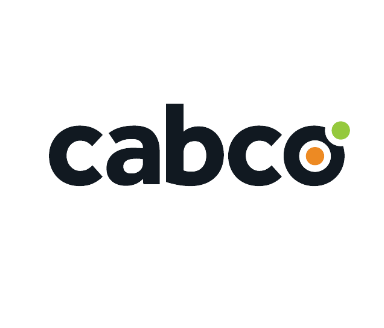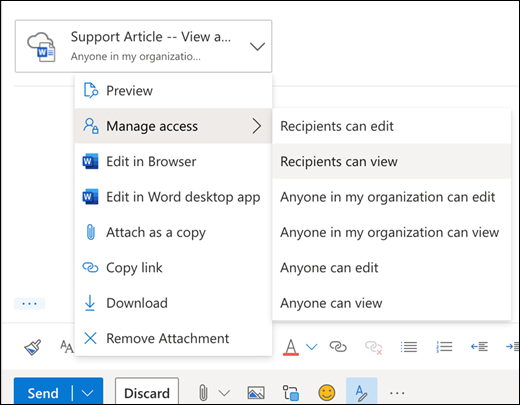Cloud Mailboxes Are Your Weakest Links
Over 90% of attacks against organizations start from a malicious email, and 75% of ransomware attacks are email-borne.
Email is the first link in a chain of attacks, and with the rise of remote work, the use of cloud mailboxes and collaboration apps increased exponentially. Harmony Email & Collaboration provides organizations with complete, full-suite protection that constantly adapts and evolves to the ever-changing threat landscape while providing security admins with an easy-to-deploy and manage platform, making your security offerings easy and efficient.
What components does Harmony Email & Collaboration security encompass, and what threats does it mitigate? This solution is dedicated to securing three essential facets of your business communication: email platforms, file-sharing, and collaboration applications.
Let's explore the details of each aspect, the risks they entail, and why your organization cannot afford to disregard this heightened security in today's digital environment.
Email Security
What is Email Security?
Email security involves a range of measures to protect email communication on platforms such as Microsoft 365 and Google Workspace environments. Its main aim is to keep emails safe and accessible. It's important for all organizations and professionals, as it stops unauthorized access and keeps data secure. Email security also blocks harmful content before it enters your inbox and ensures sensitive information stays private.
Because email is so widely used, it's a common target for cyber attackers. They use it to spread malware, steal data, and trick people into sharing private information. Email security solutions are made to deal effectively with these kinds of threats.
What are the benefits of email security?
Ensuring email security is essential for both businesses and individuals, as it safeguards sensitive information and prevents disastrous data breaches. Here are the key benefits of implementing email security measures:
Defence against phishing and spoofing attacks: Email security tools can identify and stop threats like phishing and spoofing, which can lead to malware infiltration and data compromise.
Prevention of data breaches: Email encryption adds a layer of protection, keeping confidential data such as financial records, employee information, and intellectual property safe from unauthorized access and potential breaches.
Enhanced confidentiality: Secure email encryption solutions ensure that only intended recipients can access email contents, reinforcing confidentiality and privacy.
Detection of malicious and spam emails: Email security systems can identify and filter out malicious or spam emails that may bypass standard filters, reducing the risk of users interacting with harmful content.
Protection of sensitive information: Email security measures shield sensitive data, including intellectual property and trade secrets, from interception by cybercriminals, thereby safeguarding company assets and reputation.
Real-time threat detection: Email security solutions provide real-time protection against emerging threats, including zero-day exploits, through anti-malware and anti-spam capabilities.
Prevention of compromised accounts and identity theft: Email encryption helps prevent compromised accounts and identity theft by stopping attackers from stealing login credentials and personal information or deploying malware.
Why is email security important for your business?
If someone gains unauthorized access to or impersonates your email account, they can intercept or gain access to your private communications. This could result in fraud, with cybercriminals intercepting financial transactions such as invoices. Cybercriminals will use email to abuse trust in business processes and scam organizations out of money or goods. This type of email attack is often referred to as business email compromise (BEC).
Canadians lost more than $58 million in the 1,239 phishing fraud cases reported to the Canadian Anti-Fraud Centre in 2023.
While organizations have improved their email security over time, cyber attackers continuously evolve their tactics, making it essential for businesses to stay vigilant. Social engineering techniques and other human-centric attacks pose ongoing challenges, underscoring the need for increasingly stringent and secure email systems.
2. File-Sharing
What is File-Sharing?
File-sharing is simply the act of sending files to someone else. In the past, you might have shared files by attaching them to emails. Then, they might add edits and send the files back to you and so forth.
Today, nearly 92% of Canadian businesses use some form of cloud computing. Files are now more commonly stored in the cloud, such as SharePoint, OneDrive, Dropbox, or Google Drive, and shared through links in emails, which can pose potential security risks.
What are The common risk factors for File-Sharing?
Secure file-sharing is more than just sending documents from one point to another. It's about ensuring that your valuable data remains safe from online threats while being accessible only to authorized individuals.
Data Breaches - It’s not surprising that data loss or breaches tops this list. Any data breach can be disastrous for a company or, at the very least, result in significant financial damage.
Employee Access - Negligent team members pose one of the most significant risks to your SharePoint data, from the employee who mistakenly sends a sensitive file to the wrong recipient, a disgruntled employee stealing a client list before they leave for a job elsewhere, to an individual who joins your company to gain access to intellectual property for a third party.
Guest Access - Collaboration is no longer limited to within the confines of your network. SharePoint lets you quickly and easily share documents with people outside your organization. While great for collaboration, guest access introduces several SharePoint security risks, including oversharing, accidental sharing, data loss and credential theft.
Why is secure file-sharing important for your business?
Secure file-sharing is crucial for your business due to the potential risks posed by malware-infected files. Consider the vast number of documents stored in your SharePoint – now envision the havoc just one infected file could wreak.
According to an IBM report, Canadian companies are still incurring nearly CA$7 million in data breach costs, ranking third highest globally. With the average cost of an incident remaining around CA$6.94 million, it's evident that the stakes are high.
Having a robust file-sharing security system is crucial in safeguarding your business against such costly breaches.
3. Collaboration Applications
What are collaboration applications?
Team collaboration tools are software and online services that help people work together on projects, no matter where they are. Some popular examples are Microsoft Teams, Slack, etc. These tools bring workers together to achieve common goals by offering features like messaging, file sharing, shared calendars, project coordination, and voice/video communication.
What are some common risk factors for collaboration applications?
As hybrid work becomes commonplace and teams increasingly rely on collaboration applications, many organizations struggle to effectively plan, secure, monitor, and protect sensitive information shared on these platforms.
Unfortunately, many collaboration platforms lack enterprise-grade governance and compliance tools, leaving legal, compliance, and security teams dissatisfied.
Sensitive data, including personally identifiable information (PII), protected health information (PHI), and payment card information (PCI), often enters collaboration environments unnoticed due to inadequate oversight. For instance, a retail customer with 50,000 employees experiences an average of 1,500 Slack shares containing credit card details monthly.
Additionally, a 2021 report by Veritas Technologies revealed that 71% of office workers globally admitted to sharing sensitive company data via business collaboration tools.
Why is Collaboration application security important for your business?
At the outset, Harmony’s collaboration application package can reduce the effects of a data breach by regularly monitoring and addressing any sensitive data or information that appears on collaboration platforms. Leveraging real-time compliance monitoring ensures that all employees use them properly and that essential data remains safe and secure.
Protect Your Critical Communication Channels with a Unified Security Solution
We understand that making changes to your IT infrastructure can feel daunting. That's why we offer our customers a risk-free trial to experience it firsthand. During the trial period, your existing system remains untouched—nothing changes on your end. The Harmony security solution integrates into your current setup, operating quietly in the background without disruption. After the 14-day period, you'll receive the results, helping you decide whether it's a right fit for your organization.
Sign up for our free trial today, and if you have any questions along the way, our team of Cabco specialists is here to assist you.
Harmony Email & Collaboration has been proven to catch the evolving threats missed by Microsoft Exchange Online Protection (EOP) and Advanced Threat Protection (ATP), as well as Secure Email Gateways (SEG) such as Proofpoint and Mimecast.








